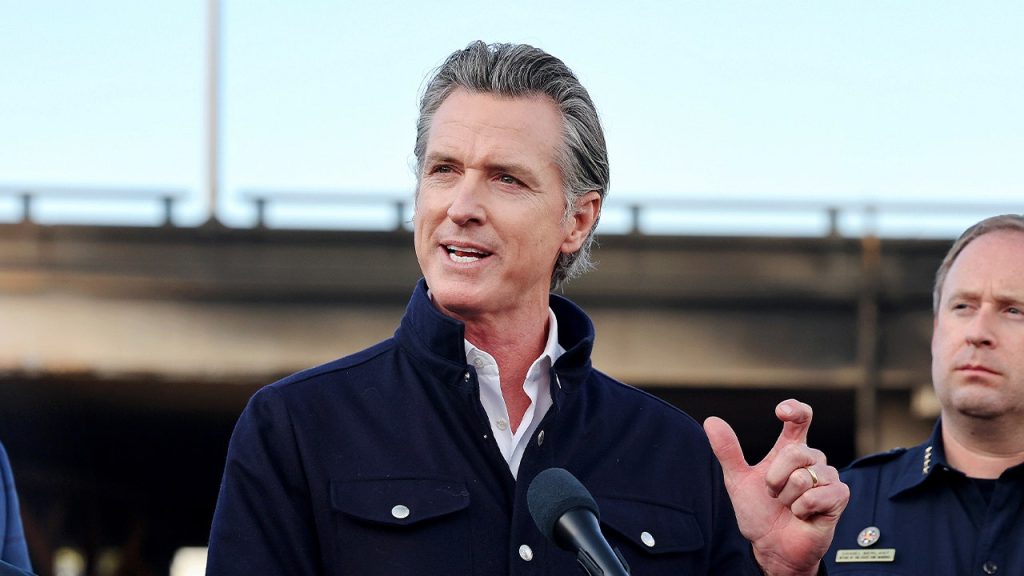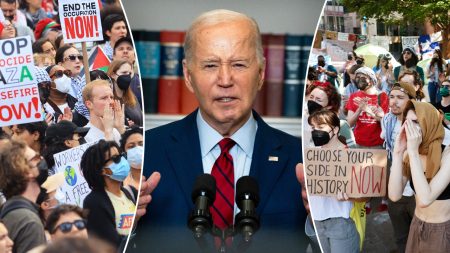Governor Gavin Newsom’s administration has found itself embroiled in a heated exchange with California Republicans over the state’s persistent and escalating homelessness crisis. A recent report from the U.S. Department of Housing and Urban Development (HUD) served as the catalyst for the latest clash, identifying California as having the highest number of homeless individuals in the nation, with a 3% increase totaling 187,000 people. Republicans, spearheaded by State Senate Minority Leader Brian Jones and Assembly Republican Caucus Leader James Gallagher, seized upon the report as evidence of Newsom’s failed policies, characterizing his substantial spending on the issue as ineffective and even exacerbating the problem. They pointed to the increased numbers as an “indictment” of Newsom’s leadership and accused him of “losing track” of the $27 billion allocated to address homelessness.
The Republican critique extended beyond the HUD report, encompassing Newsom’s overall approach to the crisis. They cited a CalMatters op-ed that similarly criticized Newsom’s record on homelessness, predicting it would become a vulnerability in any future presidential bid. The op-ed highlighted Newsom’s stated commitment to prioritize the issue and hold local officials accountable for progress, but argued that tangible results remained elusive. Republicans characterized Newsom’s response to the op-ed as a “tantrum,” highlighting the stark contrast between his rhetoric and the reality on the streets.
Newsom’s office, however, fiercely defended the administration’s efforts, arguing that the criticisms lacked crucial context. They emphasized California’s large population and argued that comparing the state’s homelessness situation without acknowledging the scale of the challenge was misleading. Furthermore, they countered the Republican narrative by asserting that unsheltered homelessness had actually grown at a slower rate under Newsom than during the final years of his predecessor, Jerry Brown’s, administration. They also pointed out that California’s 14% increase in homelessness was lower than the national average of 21%, suggesting a relative improvement despite the overall grim statistics.
This statistical back-and-forth highlights the inherent complexities in measuring progress on homelessness. While raw numbers of individuals experiencing homelessness provide a snapshot of the problem’s magnitude, they don’t fully capture the nuances of policy impacts or the effectiveness of interventions. The differing timeframes used by Newsom’s office and the Republicans further complicate the comparison, raising questions about the fairest and most accurate way to assess progress. The debate underscores the need for a more comprehensive evaluation that considers not just the overall numbers, but also factors such as the availability of affordable housing, access to support services, and the effectiveness of prevention programs.
The Republican criticism also centered on Newsom’s alleged focus on “gaslighting” the public rather than addressing the core issues driving homelessness. They argued that any increase in homelessness, regardless of national trends or comparisons to previous administrations, represents a failure. Senator Jones highlighted his own bipartisan efforts to reform homelessness policies, emphasizing a “compassionate enforcement” approach to encampment violations. One of his proposed bills, which ultimately failed to reach Newsom’s desk, would have implemented a 72-hour delay before enforcing penalties for lodging in public spaces without permission, coupled with mandatory support services for those affected. This suggests a divergence in strategies between the two parties, with Republicans advocating for a more enforcement-oriented approach alongside support services, while Newsom’s administration seemingly prioritizes broader systemic changes.
The ongoing political battle over homelessness in California reflects a deeper ideological divide regarding the role of government and the most effective solutions to complex social issues. Republicans tend to favor a more localized approach, emphasizing individual responsibility and stricter enforcement of existing laws. Newsom, on the other hand, has championed statewide initiatives and significant financial investments in programs aimed at addressing the root causes of homelessness, such as mental health care, substance abuse treatment, and affordable housing. The clash underscores the challenges in finding common ground and implementing effective, long-term solutions to a crisis that continues to grip the Golden State. The lack of consensus on the path forward suggests that the political wrangling over homelessness in California is likely to persist, even as the human cost of the crisis continues to mount.










